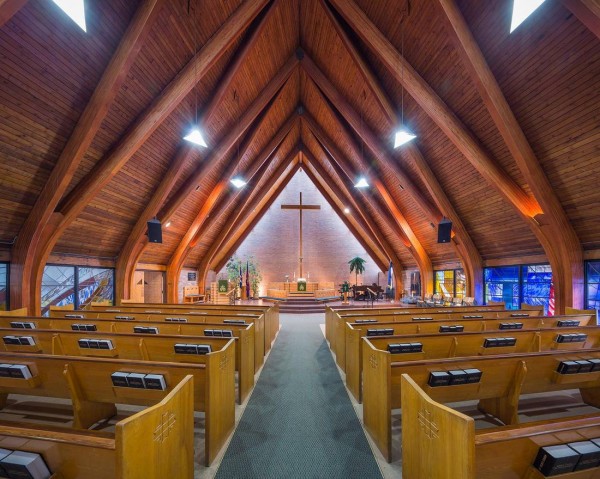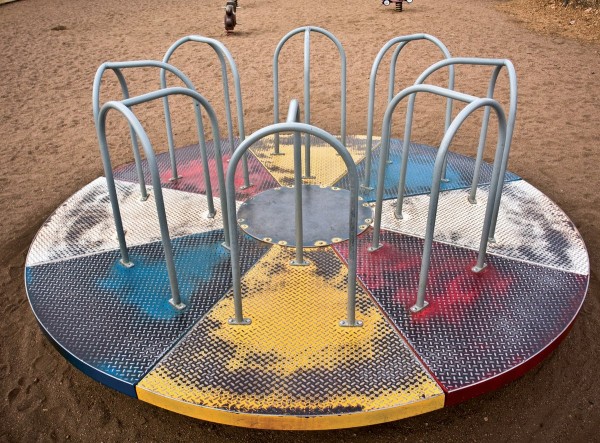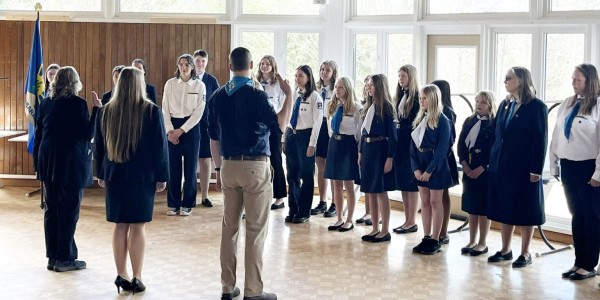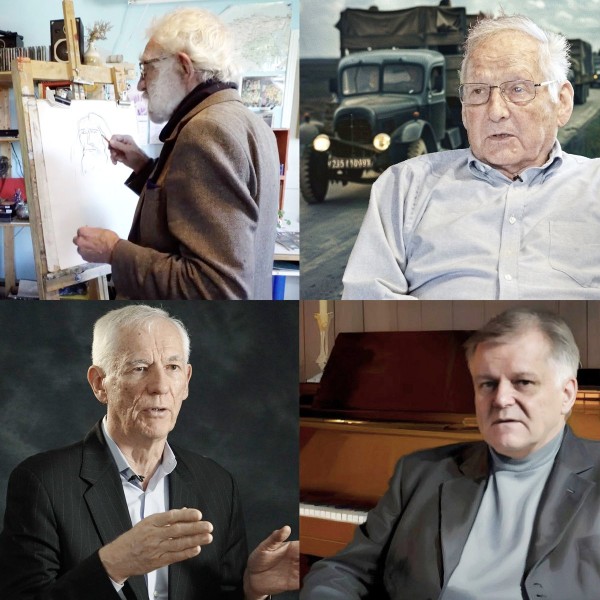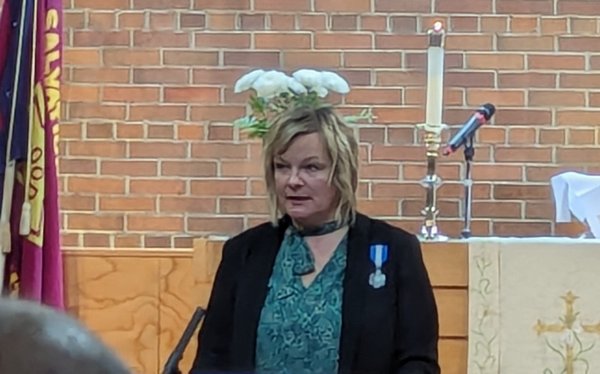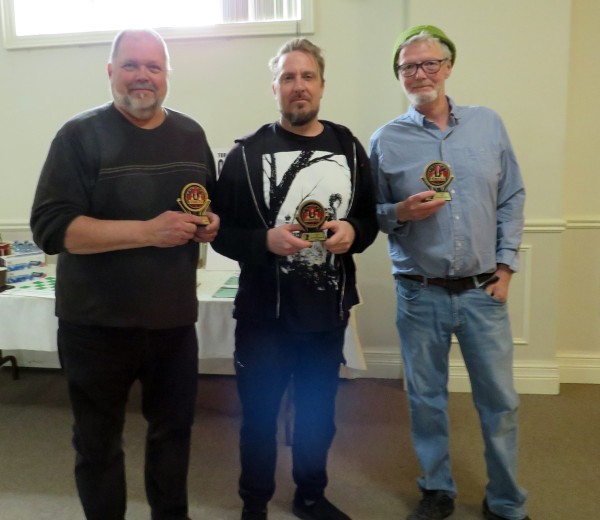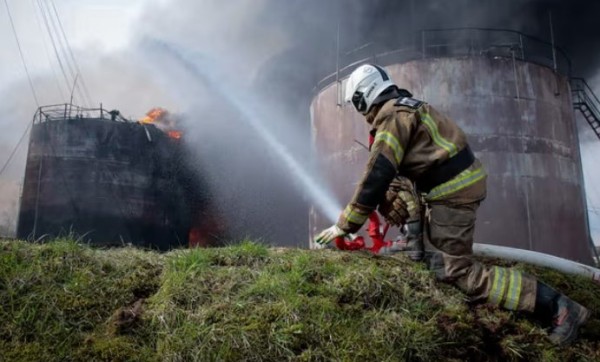The bid to sell Peetri kirik (4)
Eestlased Kanadas | 31 Dec 2020 | EWR
Alja Pirosok
On Sept. 6 pastor Salumäe spoke to his congregation from the pulpit of Toronto’s Peetri Kirik of the need to liquidate and sell the church building. An emergency assembly meeting, despite rising COVID-19 rates and mounting Public Health concerns, was scheduled for a prompt decision on Sept. 27. An article titled “To be, or not to be. That is the question” appeared in Estonian and English in Eesti Elu/Estonian Life and Estonian World Review. In the Local Events section in Estonian Life and in the Estonians in Canada and Estonian Churches sections of the Estonian World Review, it announced a rescheduled annual assembly meeting (cancelled April 19 due to the pandemic) and the need to vote. It was accompanied by a photo of the church from pastor Salumäe, with temporary construction markers occupying in one shot roughly one third of the space.
This bid should not be happening for six important reasons.
1. Peetri Kirik is not just a building, it’s architecture. That Estonians may not be as aware of the connection of architecture to spirit, as they are of the connection of music to spirit, does not mean that connection to spirit is any less vital. Neither a photograph nor a façade affords an experience of Toronto Peetri Kirik as architecture.
On the occasion of a seminal exhibit the Estonian curator is quoted in our national Canadian newspaper The Globe and Mail as saying about Peetri Kirik: " ‘I think it's one of the best churches I've ever been to, and I've been to Italy,’ Mr. Kauge says without hesitation. ‘It's just so cozy, and the light is perfect … I don't know, I felt so good inside this church.’"
"… Mr. Bach produced many churches ... His masterpiece, however, is St. Peter's Estonian Evangelical Lutheran Church at 817 Mount Pleasant Rd."
2. The special quality of Peetri Kirik as architecture has not gone completely unnoticed. A major exhibit, celebrated first by the Canadian public in Toronto at VEMU and then at the Estonian Museum of Architecture in Tallinn, has heralded a new era of recognition for Estonian architecture.
The exhibit curated by Jarmo Kauge secured a place for Estonian architecture in the mainstream that it so richly deserves, at the same time as it disclosed the history of Estonian people to more than one public that had hitherto been unaware of its existence. This may not yet be appreciated but in 2017 it initiated the voicing and discussion of its special character and ideals.
An evolution of this discussion on the basis of this material development depends on the continued existence and enjoyment of the building as architecture, and thus the maintenance of a vital connection to its history and legacy.
To those who claim we are in inevitable decline we can advise they look to the example and activities of the Alberta Estonian Heritage Society to see extraordinary possibilities of preservation and collaboration in diversity across many, many generations!
3. Now, or further on, there is a tried-and-true solution to the problem of preserving architectural heritage sustainably. It is called adaptive re-use. The very qualities of midtown Peetri Kirik that have been noted as especially suited to its function as a church – a cosiness, the perfect light, an overall feel-good vibe – also lend themselves well to a community centre. Examples of adaptive re-use include Cecil Community Centre in downtown Toronto, a former synagogue. For decades multipurpose rentals and meetings there have included the activities of a society for the advancement and preservation of Tai Chi, which is also about spirit. In society at large performing artists and others displaced from large venues during COVID have started looking for longterm options. The need for “safe” possibly midsize venues to relieve the stresses of isolation have never been as great for all.
The active Estonian community includes guides and scouts, seniors, and other groups currently in need of a replacement for the home they, and other active communities, had at Toronto Eesti Maja, or the place they may need in our new circumstances.
We have many innovative and creative thinkers. What is preventing them from coming together, with support from the broader community which has valued and developed expertise in adaptive re-use, to address the potential of this option for Peetri Kirik?
4. Perhaps the main argument for consolidation at Tartu College was its solid self-financing capability as a student residence, but this has been hugely impacted by COVID-19, with no end in sight anywhere or anytime soon. Students are not travelling to Canada and universities have gone online. The terms of Tartu’s financing preclude rental to anyone but students in the school year. The Age of COVID, as coined, is upon us. Brilliant business models of old do not and will not work in the era of pandemics. Given the unprecedented uncertainty, this is hardly the time to sell off scarce community property that exists for the common good. Such is the physical, spiritual and expressly designed space of St. Peter’s Estonian Evangelical Lutheran Church.
5. It is imprudent, to be generous, to ask the congregation to ignore the advice of all our Public Health officials to attend an important meeting and church service at this time. It is clear COVID-19 has necessitated much rethinking; the fate of Peetri Kirik should be no exception.
6. It is important who does the rethinking of the future of Peetri Kirik. Is it fair that only the directors of an organization do the thinking and the rethinking? How important is it not to disenfranchise members of a community, for example those “older family members” who may not know their way around a computer? Harvard prof. Michael Sandel’s argument for a politics of the common good vs. The Tyranny of Merit, as his recent book is titled, offers some insight into these persistent questions.
We live in an age of winners and losers, where the odds are stacked in favour of the already fortunate. Sandel highlights the hubris a meritocracy generates among the winners and the harsh judgement it imposes on those left behind. He offers an alternative way of thinking about success – “more attentive to the role of luck in human affairs, more conducive to an ethic of humility, and more hospitable to a politics of the common good”. In the words of an online reviewer, “The more we think of ourselves as self-made and self-sufficient, the harder it is to learn gratitude and humility. And without these sentiments, it is hard to care for the common good.”
https://www.tvo.org/video/mich...
On the 50th anniversary of Eesti Maja chairman of the board Osvald Piil is reported to have emphasized it had been the community’s House of Parliament. The members of Peetri Kirik’s congregation justly need to be engaged, heard, and respected for their contributions to working through its meaning for them as persons and its place as they see it in a larger enduring perspective.
Viimased kommentaarid
Kommentaarid on kirjutatud EWR lugejate poolt. Nende sisu ei pruugi ühtida EWR toimetuse seisukohtadega.
There is no doubt that the church needs to re-focus and adapt. The future committee has been driving to the future using only a rear view mirror. We should be looking to the future in "how can the church better serve our community, how can it become relevant and not stuck in the past?" There are so many examples, including the transformation of St. Andrew's after the Estonians and Latvians sold it. With 50% of the assembly over 60 years of age and the most at risk for COVID 19 , the future committee has suggested that they show up and vote responsibly. This reflects how out of touch with reality the church has become. Shameful!!
Eestlased Kanadas
TRENDING






